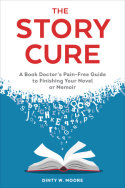
I rarely write about the dangers and downsides of travel. Probably
because I rarely have negative experiences, myself. That doesn’t mean
they don’t happen. In Rod Jasmer’s terrifying memoir,
Without Explanation: A True Story of Love and Loss in the Jungle, he describes the worst case scenario of a dream vacation that became a nightmare.
Jasmer and his wife, Valerie, traveled to Guatemala with another
couple to hike in the jungle. It had been years since they’d traveled
without their children and they were looking forward to their getaway.
Once they arrived in Guatemala, they set out on their first trek, eager
to get moving after the long journey and start exploring. They found
their way to a remote Mayan temple, and there they watched the sun set
on their first day in Guatemala. Unbeknownst to any of them, this would
be Valerie’s last.
In the middle of the night, Jasmer was awakened by his wife’s strange
breathing. Thinking she might be having a nightmare, he gently tried to
wake her and quickly realized that something was terribly wrong with
his wife. Her breathing was gurgled and she was unresponsive. He
immediately began yelling for help and soon began administering CPR
while their friends frantically tried to find help.
What followed was an ordeal that could only happen in a
poverty-stricken country such as Guatemala. I was right there with
Jasmer as he tried to convey the urgency of his situation to people
unable to provide even the basic essentials to keep his wife alive.

I
imagine the hospital Valerie went to as a cross between this rural
Nicaraguan clinic and a more urban, substandard (by Western standards)
hospital.
The “ambulance” ride was roughly the equivalent of a van, driven by
park rangers with no medical training. The hospital they went to was
deserted and was little more than a clinic with old, dirty equipment. It
reminded me of a cross between the clinic I helped build in Nicaragua
on a mission trip, and the hospital that we visited while I was there.
To call it unsanitary is an understatement. There were puddles of
antifreeze dripping from the burn ward, which was the only
air-conditioned area. Labor and delivery amounted to a room full of twin
beds, mattresses with stained, dirty sheets, and women dressed in
bloody t-shirts and slips after having given birth. The day we went
there, we distributed baby blankets and diapers. The women only stayed a
few hours after giving birth and then went home with their babies.
It was experiences like these that I pictured the whole time I was reading
Without Explanation.
To the modern world, the conditions in Guatemala seem surreal. The lack
of resources is overwhelming and though Jasmer describes it as
factually as it happened, it seems like something that couldn’t possibly
be true. How, in this new millennium, could a woman’s body be put into a
loosely-crafted pine box and loaded into the bed of a pick-up truck too
short to allow the back to close, to then be transported for hours in
the Guatemalan sun? Like Jasmer, I was astonished to think that this
could be the fate of someone — the fate of one’s spouse — on what was
supposed to be a dream vacation. Except that I wasn’t astonished. I’d
experienced extreme conditions like this in Nicaragua.
Jasmer’s account of his wife’s final hours and the subsequent ordeal
of trying to get her body back home was heartbreaking. Wracked with
guilt, Jasmer wondered whether she would have survived had she been in a
country with adequate care. She died without explanation.
I couldn’t put
this book
down. It almost seemed like I was experiencing Jasmer’s ordeal in real
time. He put the reader right there with him for each excruciating turn
of events during an aspect of travel that I rarely consider: what if
something goes horribly wrong?




